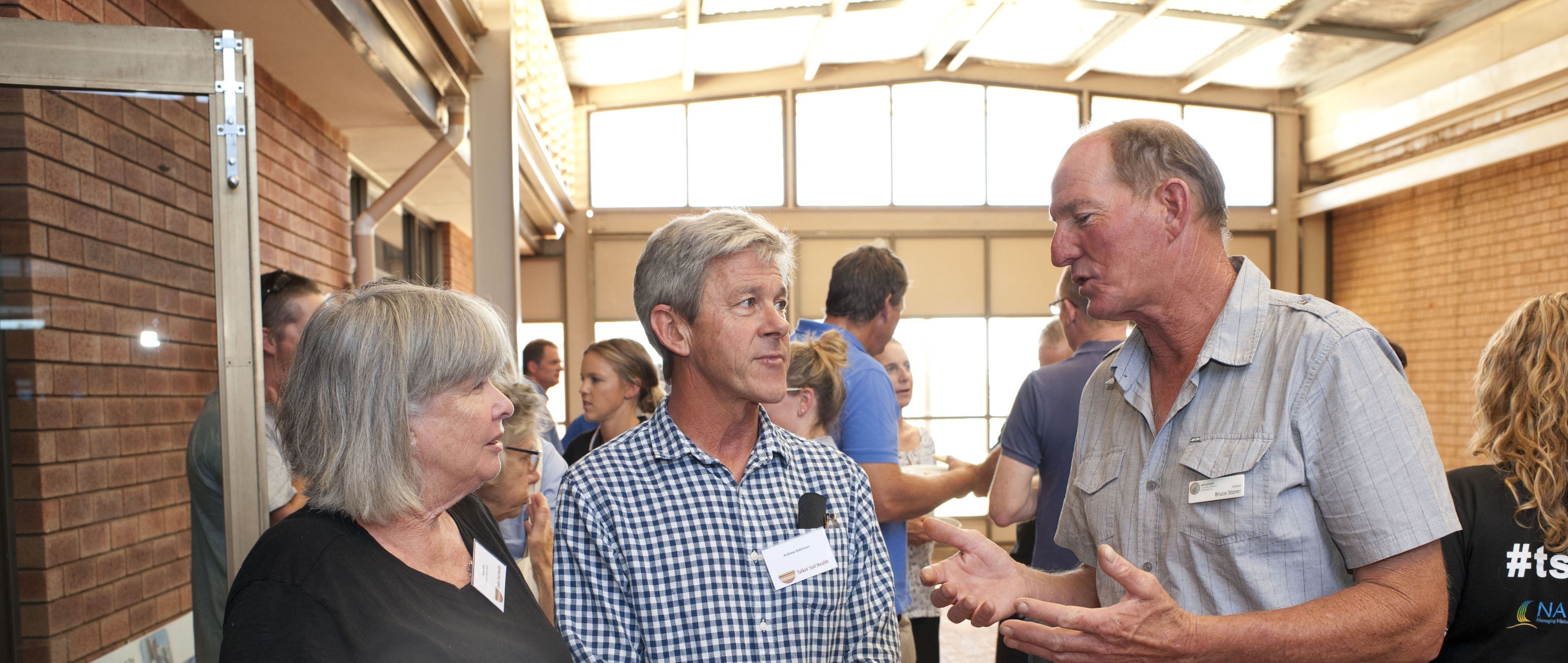More than 85 people attended the two-day Talkin’ Soil Health Conference in Dalwallinu this week, led by Pip Courtney from ABC TV’s “Landline” and heard from a bounty of speakers, learning and discussing all aspects of soil properties and its health. One of the key messages emphasised was that focusing on increasing soil fungi and microbes can help drastically improve the uptake of key nutrients including phosphate and nitrogen.
Nicole Masters, Director of New Zealand based, Integrity Soils, said, “On average, our crops are only utilising about five per cent of the phosphates and nitrogen we apply. If we improve our soil health by supporting and feeding microbes and fungi, we can produce a much stronger, efficient, healthier and productive plant. By making a stronger root system, a buffer is made against major cropping constraints in the Wheatbelt, which include acidy, salinity, temperature and moisture. The problem is, many of our modern farming practices are working against this natural system, including the use of soluble phosphates and not feeding biology.”
Major General the Hon Michael Jeffery (former Governor-General of the Commonwealth of Australia and Chair of “Soils for Life”) fervently urged the audience that there should be a veggie garden in every school which is incorporated into the curriculum from Year 1 to Year 10, so that 16 year-olds know the critical importance of soil and water in food production.

Also announced at the conference were the 2018 Soil Health Champions. Burracoppin farmer Tony Murfit was named the Wheatbelt Soil Health Champion. Tony has had success in overcoming acidic soils by using soil identification and zoning, variable rate lime and gypsum applications, fallow to control weeds, deep ripping and a cover crop. This has helped produce yields of up to two tonne to the hectare on canola crops in the eastern Wheatbelt.
Carnamah farmer, Brendon Haeusler, won the title of the Northern Agricultural Region’s Soil Health Champion. Brendon has turned around areas affected by salinity through the use of revegetation and W drains for grazing and cropping.

Also launched at the conference was a website showcasing farmers who have undertaken sustainable agriculture trials. These trials vary from wood pellets to increase soil carbon and biology, precision agriculture to improve nutrient efficiency and tackling soil acidification.
The Talkin' Soil Health conference and AgTrialsWA website have been funded through the Australian Government’s National Landcare Program.


